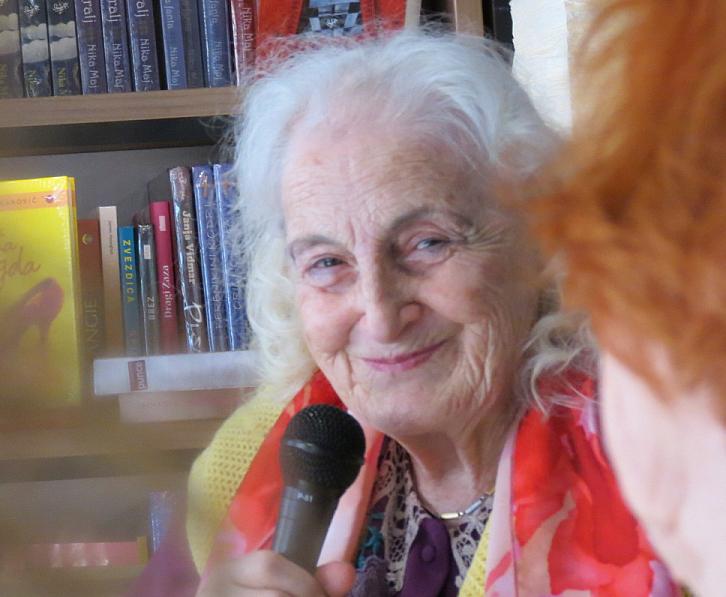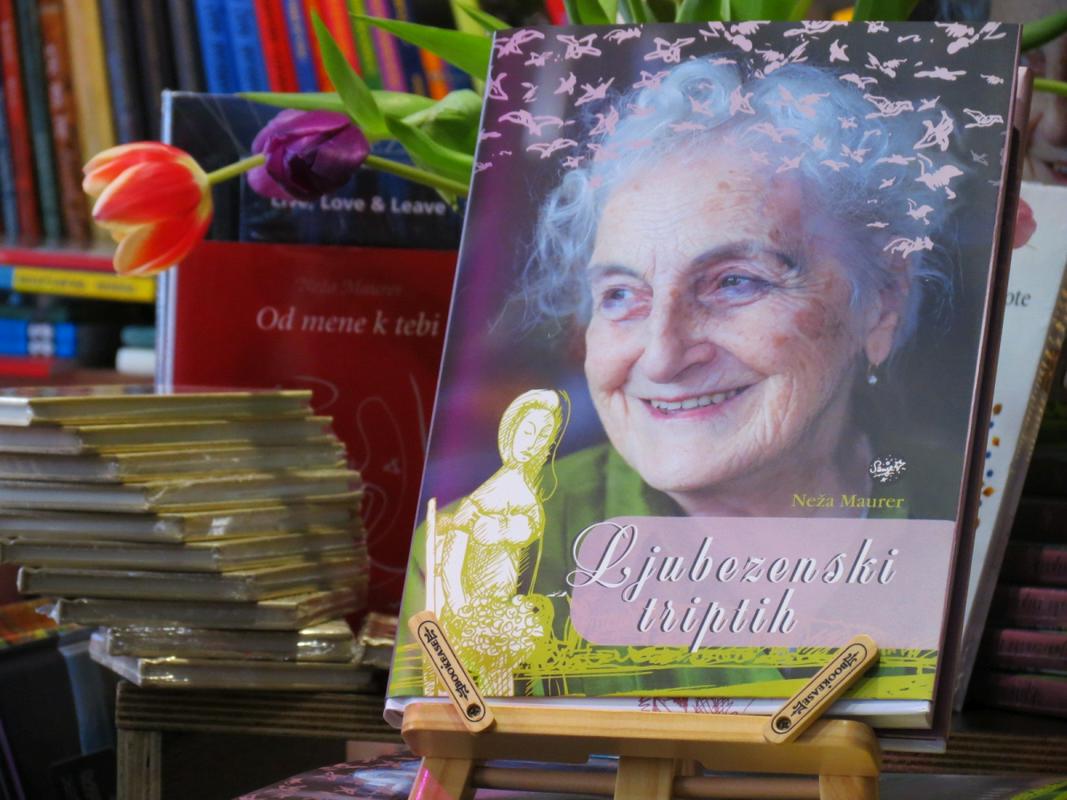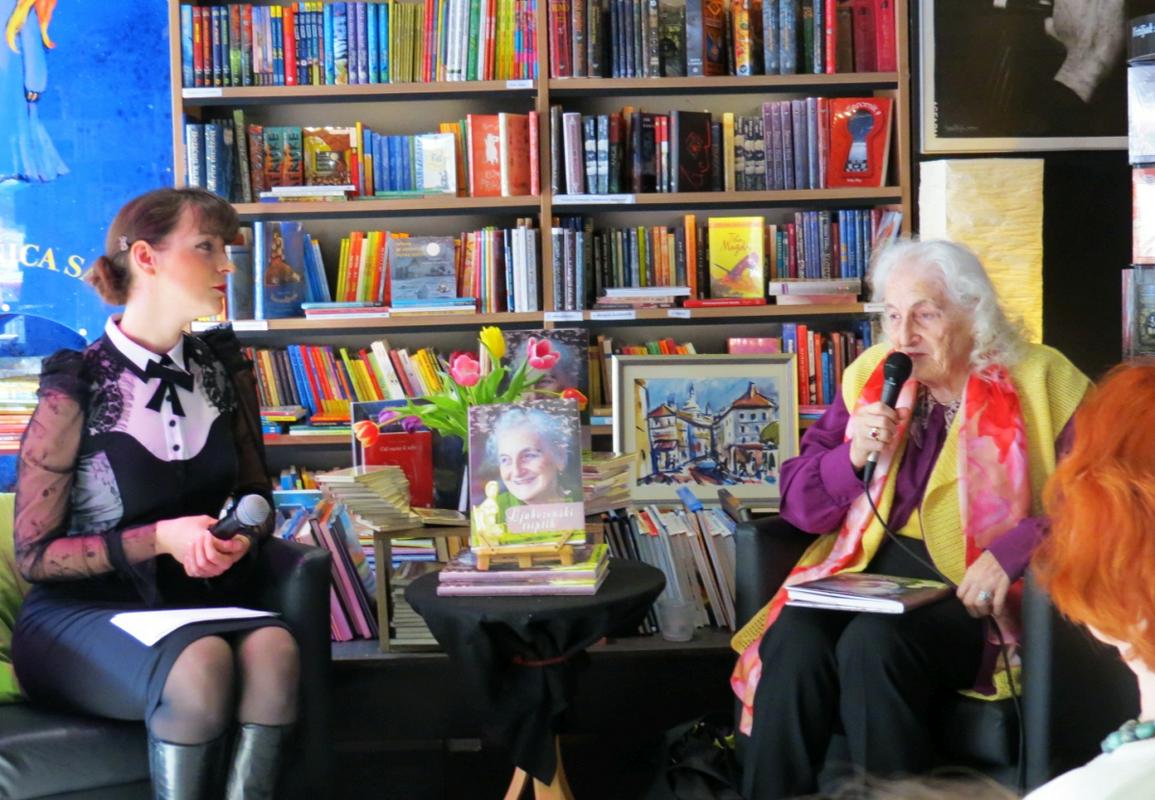

Most people – I have often been present when somebody died – smile beatifically when their life ends. Why? There must be something which overcomes a person with joy.


"Softly, gently, as the world caresses a bloom, as the air strokes water, as the wind embraces a rock – a wish touches the heart. Softly, gently."
Thus wrote the poetess and writer Neža Maurer in her new collection of poems titled Love Triptych. At today's presentation of her new book, coinciding with World Poetry Day, the extremely vital and roguish 84-year old author explained that the creation of this collection took several decades. It consists of three independent parts: in the first, Yearning- no. 1000 (cheek to cheek with beauty) she concentrates on yearning, in the second, The same words don't ever have the same meaning she writes about the thousand faces of love, and the third is dedicated to trains she has always loved, therefore the title Trains are tempting.
"The first cycle speaks about yearning, about flowers – I was inspired by the cycle of works by the painter Stanislava Sluga. Her paintings really touched me, it was the essence of yearning, therefore the title of the first part of the book," Maurer explained the origin of the cycle.
The second cycle is dedicated to indestructible infatuation, or love, and the poet kept adding to it through years. "It is not love fulfilled, perhaps only for a short time, as long as men can stand it (laughter). I really don't know if I ever heard a man say 'I've loved her my whole life.' I've never heard that. But it stayed alive in me, and the poems kept coming during a longer period of time. And although a person changes completely, he remained dearest to me. Perhaps it is a bit egoistic, as during the time we were together the poems kept coming," Maurer remembers. And as she said she still can't explain, even today, why it was the only period she wrote with ease, as never before and never after. "At that time the poems came to my mind already made."
"Once I told him: 'I have the feeling that whenever we are together I am constantly stealing your thoughts. He replied: Don't worry, keep stealing them, since I am rather lazy myself.' It was permission for me to continue stealing," recollects the poetess now living and writing in Škofja Loka, with a smile on her face.
The third cycle is dedicated to trains. "There were not so many cars yet at that time, I hated buses, but I loved trains. So if I travelled to Pula it was not for admiring the sea, but to travel by train for six hours. Or eight from Ljubljana to Belgrade. I enjoyed it. The views, the beat of the trains – in other situations it would bother me, but not on the train, I slept peacefully," she explains how trains entered her book of poems.
Marko Črtalič was of great help to the poetess, and he also wrote the preface to the collection of poems. Their cooperation has been going on for more than 20 years. It started when the poetess asked him once to read one of her poems out loud, as she was not completely sure about it. "And Neža said: 'When you read my poem out loud I feel it differently, and can tell whether it is great, or not.' So we continued our cooperation with other books as well." He explained that the procedure was the same for Love Triptych: he read the poems, next came the polishing ...
The design of the book (published by Založba Sanje) is the work of Jana Pečečnik, and it was illustrated by Edi Sever. "Neža is to Škofja Loka what Ronaldo is to Real. Nothing else is happening but commemorations, and passion plays, while Neža stands for humour, and life," he flattered the poetess at today's presentation.
Prolific career lasting more than six decades
The poetess born in 1930 writes for children, youth, and adults, poetry mostly. She has signed her name under more than 20 collections of poems for adults, and just as many for children, she wrote more than 80 radio plays for children and quite a few broadcasts for which she received a number of awards, from the Prešeren Fund Award to Levstik Award. With her work, mainly poems, she left a lasting mark in the Slovenian literature which she has been co-creating for more than six decades, the publishing house Sanje wrote.
Most people – I have often been present when somebody died – smile beatifically when their life ends. Why? There must be something which overcomes a person with joy.

































































